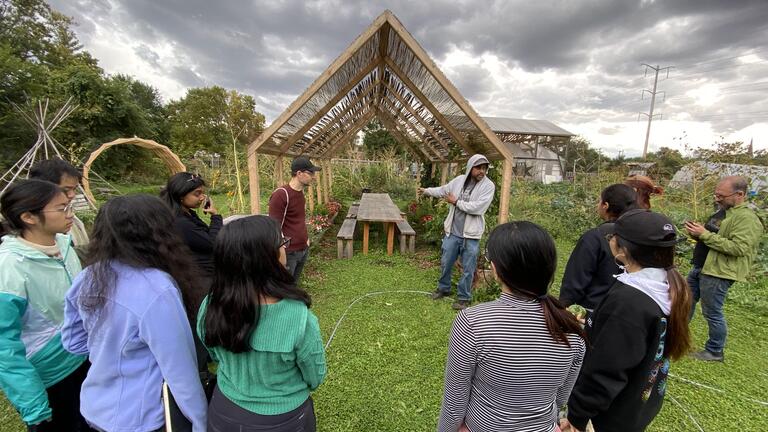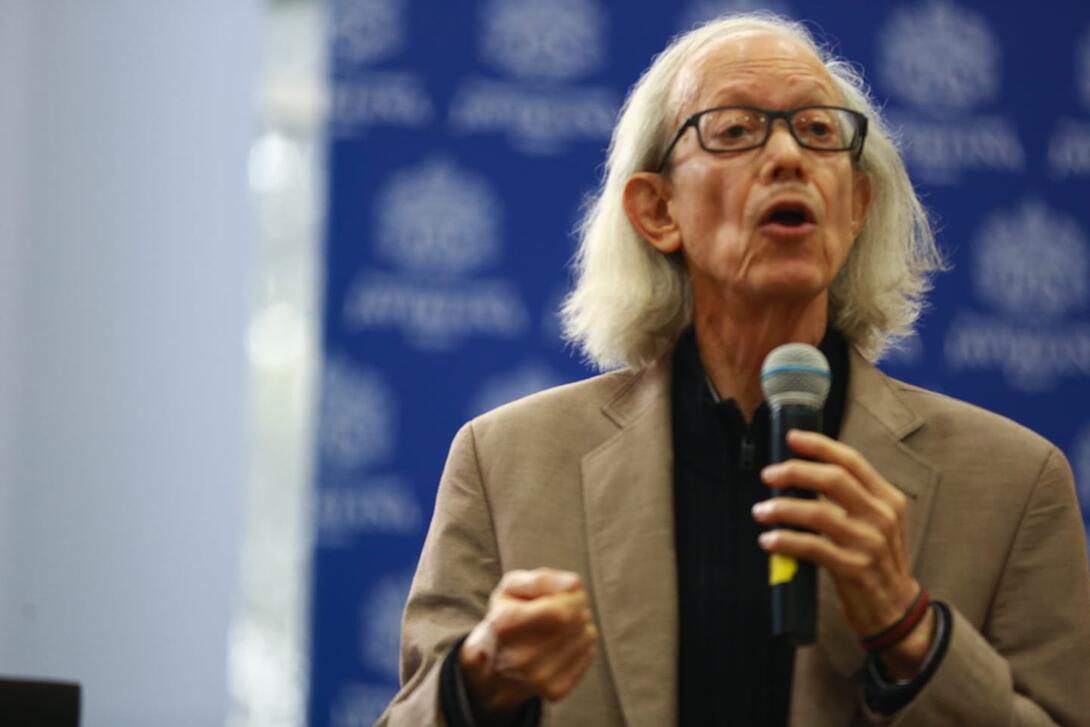
Watson Chair in Architecture
Organized by the Remaking Cities Institute
Over the 2024 fall break, the Master of Urban Design (MUD) students traveled to Chicago for an immersion at the Sweet Water Foundation hosted by Emmanuel Pratt, the founder of the Sweet Water Foundation and the inaugural Watson Chair in Architecture at Carnegie Mellon Architecture.
The Watson Chair in Architecture invites distinguished scholars, researchers and practitioners to campus for lectures, seminars and workshops that engage the Carnegie Mellon Architecture community in critical discourse on the built environment.
Jump To...
The Watson Chair has broad appeal across Carnegie Mellon Architecture’s degree programs and provides intellectual and professional insight into topics engaged by the school. The chair addresses subject matter rooted in global perspectives, interdisciplinarity, and diversity of experience. The chair’s work should address one or more of the school’s pedagogical challenges: climate change, artificial intelligence and social justice.
Types of Engagements
The Watson Chair engagement can take one of two forms:
- Short term engagement (one-week, themed series of lectures/workshops)
- Semester engagement (periodic visit over the semester, design studio/design research)
The chair's residency takes place during the fall and/or spring semesters of the year following their selection.
Nomination Process
Carnegie Mellon Architecture faculty and staff are invited to submit nominations for the Watson Chair. The nomination must include:
- Name of the nominee
- Short description (250 words or less) detailing why this person would be a good candidate for the position
- Link(s) to the candidate's work and/or website
Nominees should fit one or more of the following categories:
- Public intellectual (with a focus on the intellectual concerns related to the built environment: social, political, economic, philosophical, pedagogical)
- Architectural educator
- Renowned architect and/or practitioner
Selection Process
A faculty committee reviews the nominees and provides a shortlist of four to five (4-5) people to the head of school. The committee chair shares the shortlist of candidates with the faculty and staff in early November.
Watson Chair Recipients

-
Arturo Escobar is a Colombian American anthropologist, known for his work in post-development theory, political ecology, and ontological design, who co-founded the Global Tapestry of Alternatives. Born in Manizales, Colombia, he holds a Ph.D. from UC Berkeley. He previously taught at the University of North Carolina, Chapel Hill, and became a member of the American Academy of Arts and Sciences in 2021. For the past three decades, Escobar has been working closely with Colombia Afro-descendant, environmental and feminist organizations. His influential books include "Encountering Development: The Making and Unmaking of the Third World" (2011); "Designs for the Pluriverse: Radical Interdependence, Autonomy, and the Making of Worlds" (2018); "Pluriversal Politics: The Real and the Possible" (2020); and "Relationality: An Emergent Politics of Life Beyond the Human," with M. Osterweil and K. Sharma (2024).

-
Emmanuel Pratt is an American urban designer. In 2009, he co-founded the Sweet Water Foundation, which practices "Regenerative Neighborhood Development" on the South Side of Chicago. The foundation brings intergenerational members of the community together for education and to work on urban agriculture and reclaiming abandoned properties and transforming them into productive landscapes. In 2019, Pratt was invited to participate in the third Chicago Architecture Biennial, where his entry "Reroot + Redux" explored the connections between architecture and the Great Migration. Pratt was named a MacArthur Fellow in 2019.
Pratt was born in Virginia and graduated in 1995 from Maggie L. Walker Governor's School in Richmond, Va. In 1999, he graduated with a Bachelor of Architecture from Cornell University. He received a Master of Science in Architecture and Urban Design from Columbia University in 2003. From 2016 to 2017, Pratt was a Loeb Fellow at Harvard University Graduate School of Design. From 2011 to 2018, Pratt was director of the aquaponics program at Chicago State University. He was the Charles Moore Visiting Professor at the Taubman College of Architecture and Urban Planning at the University of Michigan and is a visiting lecturer in Environmental and Urban Studies at the University of Chicago.